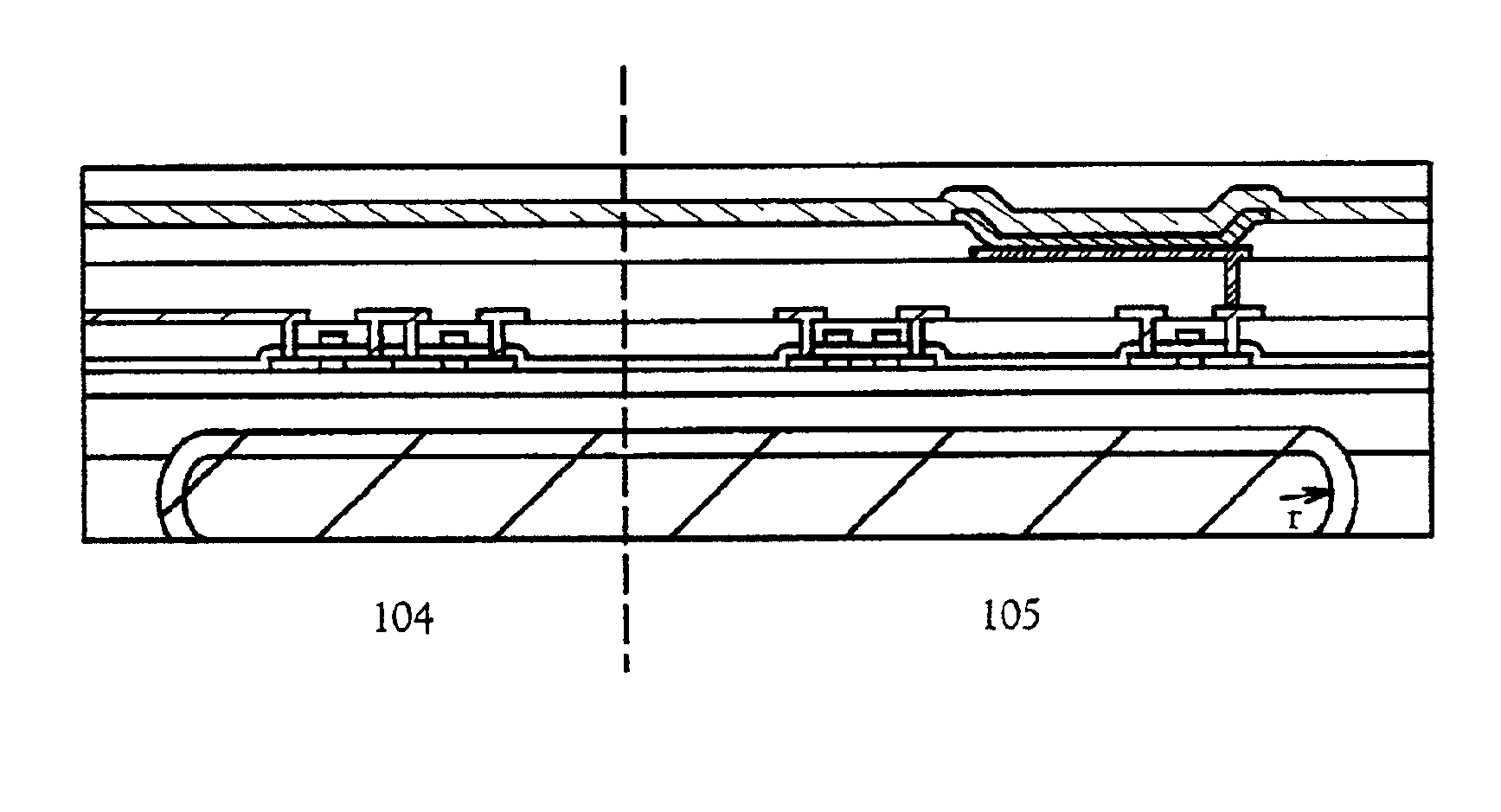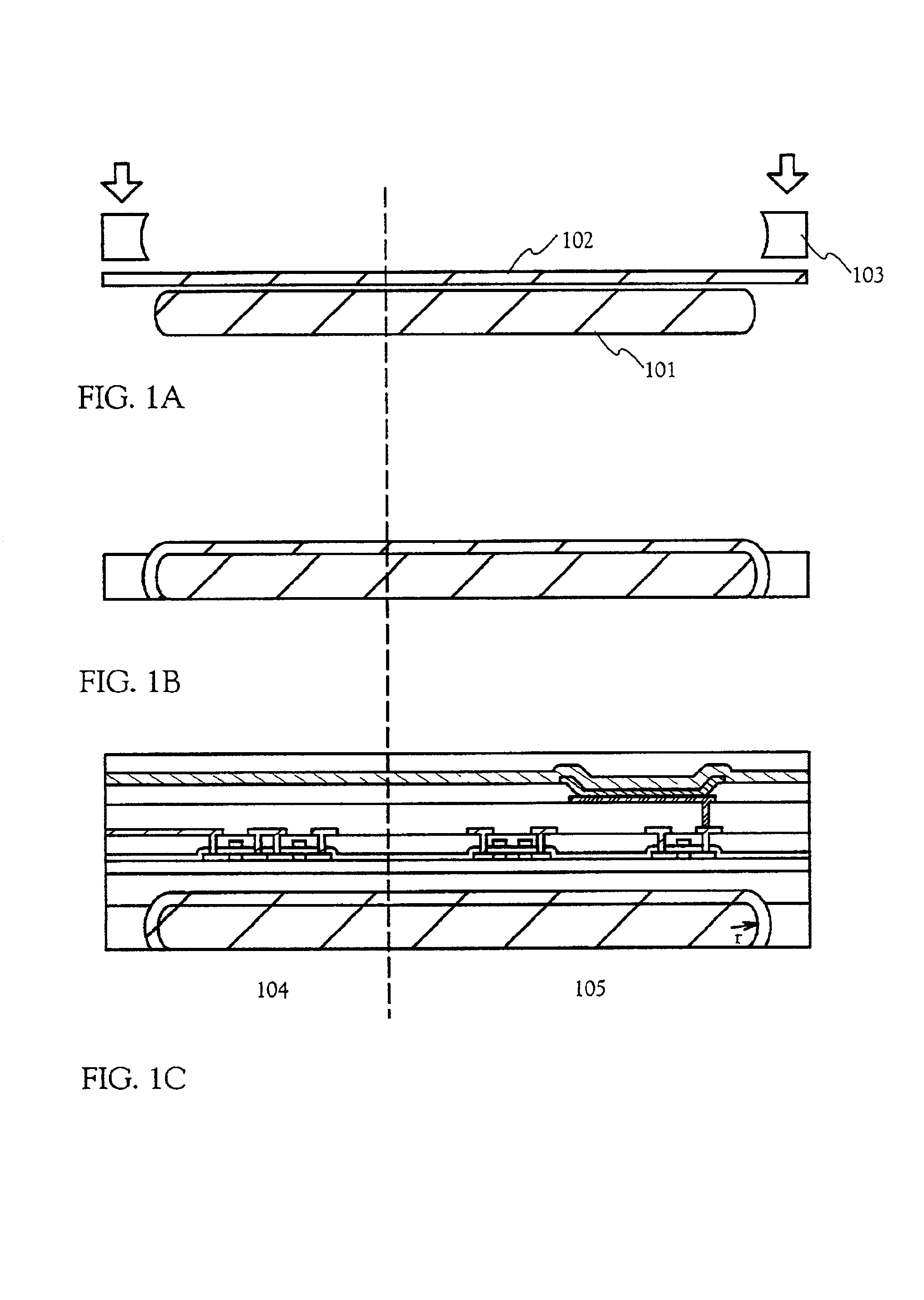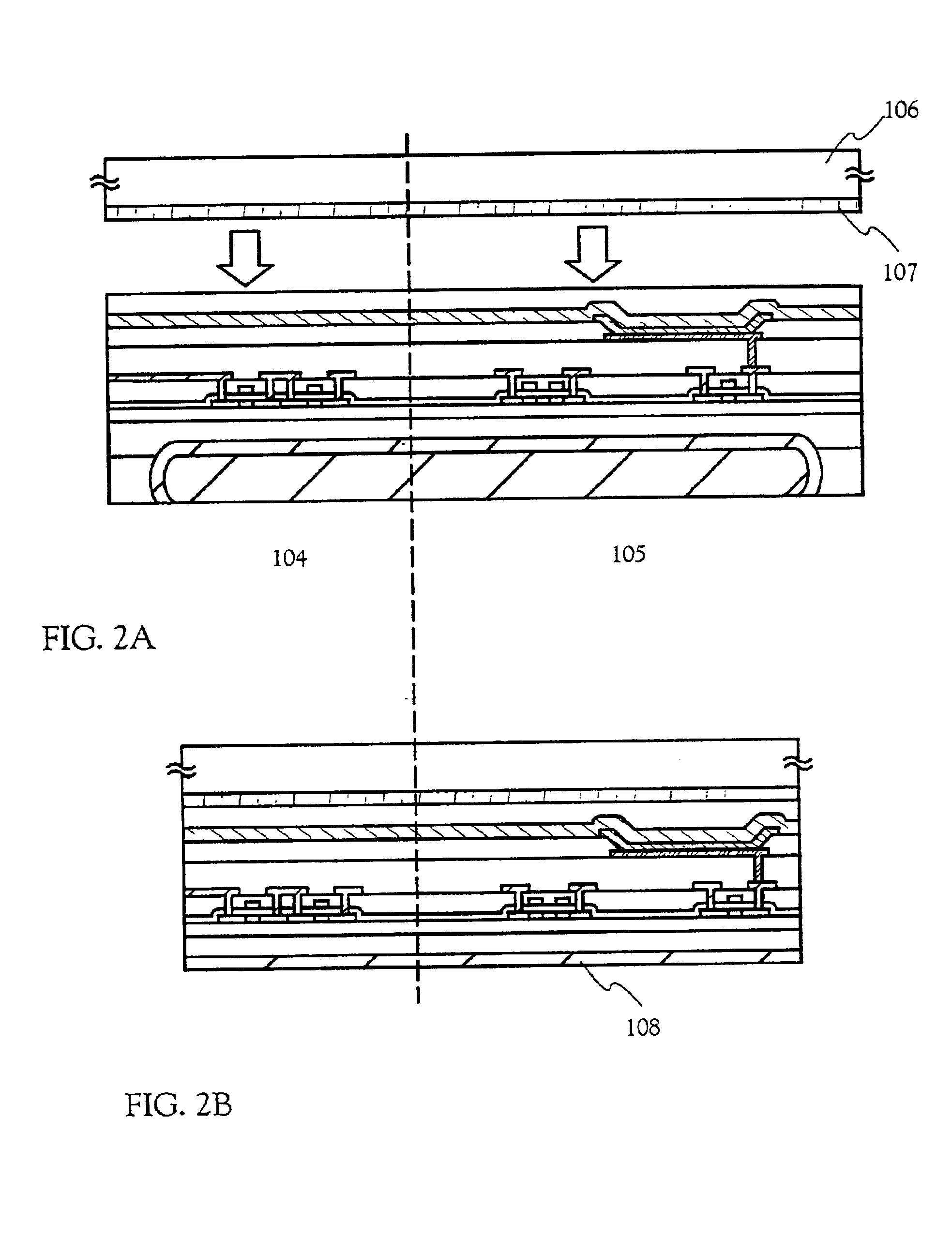Semiconductor device and manufacturing method therefor
a semiconductor and manufacturing method technology, applied in the direction of organic semiconductor devices, discharge tubes/lamp details, discharge tubes luminescnet screens, etc., can solve the problems of increased production costs, high cost of circular polarizing films, and inability to achieve high-performance light-emitting devices using plastic films. , to achieve the effect of low cost and low cos
- Summary
- Abstract
- Description
- Claims
- Application Information
AI Technical Summary
Benefits of technology
Problems solved by technology
Method used
Image
Examples
embodiment 1
[Embodiment 1]
[0058]An example of a method of manufacturing a light emitting device sandwiched by an element substrate made from a thin metallic substrate, and by a fixing substrate made from a resin substrate, is shown in embodiment 1 using FIGS. 1A to 1C, and FIGS. 2A and 2B. Note that the present invention is of course not limited by the structure shown in embodiment 1.
[0059]First, a stainless steel substrate (JIS SUS304 or JIS SUS316) is used as the substrate holder 101. The substrate holder 101 and the element forming substrate 102, made from a thin metallic substrate (JIS SUS304 or JIS SUS316), are then fixed together by the fixing portion 103. (See FIG. 1B.)
[0060]After next forming a base insulating film on the metallic substrate 102, necessary elements are formed on the base insulating film. An example in which the driver circuit 104 and the pixel portion 105 having EL elements are formed is shown here. (See FIG. 1C.)
[0061]A silicon oxide film, a silicon nitride film, a sili...
embodiment 2
[Embodiment 2]
[0074]A method of selectively forming a crystalline semiconductor film using a metallic element for promoting crystallization of an amorphous semiconductor film is explained using FIGS. 3A to 3C. Reference numeral 200 denotes a base insulating film, as discussed above, in FIG. 3A.
[0075]First, a metallic substrate and a substrate holder are fixed by a fixing portion in accordance with the method shown in the embodiment mode, and the base film 200 is formed thereon. An amorphous silicon film 201 is then formed on the base insulating film 200 by a known method. A 150 nm thick silicon oxide film 202 is then formed on the amorphous silicon film 201. No limitations are placed on the method of manufacturing the silicon oxide film, and it may be formed, for example, by high frequency (13.56 MHz) emission with a power density of 0.5 to 0.8 W / cm2 using a mixture of tetraethyl orthosilicate (TEOS) and O2, and at a reaction pressure of 40 Pa and a substrate temperature of 300 to 4...
embodiment 3
[Embodiment 3]
[0079]Metallic elements utilized in crystallization of a crystalline silicon film manufactured by performing the processes explained by embodiment 2 remain after manufacture. Even if the metallic elements are not distributed evenly within the film, they exist at a concentration exceeding 1×1019 / cm3 when taking an average concentration. It is of course possible to use the crystalline semiconductor film in channel forming regions for all types of semiconductor devices such as TFTs, in this state, but it is very preferable to remove the metallic elements by gettering.
[0080]An example of a gettering process is explained using FIGS. 4A to 4C. A silicon oxide film mask 302 having a thickness of 150 nm is formed on the surface of a crystalline silicon film 301, an opening portion 303 is formed, and a region in which the crystalline silicon film is exposed is formed. It is possible to utilize the silicon oxide film 202 shown by FIG. 3A as is for a case in which embodiment 2 is...
PUM
| Property | Measurement | Unit |
|---|---|---|
| thickness | aaaaa | aaaaa |
| surface roughness | aaaaa | aaaaa |
| thickness | aaaaa | aaaaa |
Abstract
Description
Claims
Application Information
 Login to View More
Login to View More - R&D
- Intellectual Property
- Life Sciences
- Materials
- Tech Scout
- Unparalleled Data Quality
- Higher Quality Content
- 60% Fewer Hallucinations
Browse by: Latest US Patents, China's latest patents, Technical Efficacy Thesaurus, Application Domain, Technology Topic, Popular Technical Reports.
© 2025 PatSnap. All rights reserved.Legal|Privacy policy|Modern Slavery Act Transparency Statement|Sitemap|About US| Contact US: help@patsnap.com



